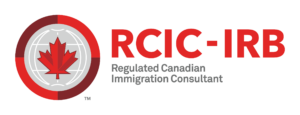Super Visa Income Increase: What it Means for You in Canada

Super Visa Changes: What They Mean for You in Canada
Planning to bring your parents or grandparents to Canada? Significant changes are coming to the Super Visa program. Notably, income requirements have increased. This impacts many families in Canada, including right here in [Your City/Region]. Understanding these changes is crucial for anyone hoping to reunite with their loved ones.
Understanding the Super Visa Program
The Super Visa allows parents and grandparents of Canadian citizens and permanent residents to visit Canada for extended periods. It offers extended stays, making it a popular option for families who want to spend quality time together. For many families in provinces like Ontario, British Columbia, and Alberta, it’s a vital pathway to connect with overseas relatives.
Why the Change in Income Thresholds?
The increase in income requirements reflects the rising cost of living in Canada and aims to ensure that sponsors can adequately support their visiting family members without relying on public funds. The government periodically reviews these thresholds to align with current economic realities. According to Immigration, Refugees and Citizenship Canada (IRCC), updated income requirements are published annually.
How This Affects Families in [Your City/Region]
If you reside in [Your City/Region] and are planning to sponsor your parents or grandparents, you need to carefully assess your financial situation. The higher income requirements mean you’ll need to demonstrate a higher level of financial stability to be eligible. This includes providing proof of income, such as tax returns, pay stubs, and bank statements. Consider seeking advice from a local immigration consultant or financial advisor in [Your City/Region] to navigate these changes effectively. For example, [Local Immigration Service Name] in [Your City/Region] offers consultations to help families understand their options.
Meeting the Revised Income Requirements
To meet the revised income thresholds, sponsors must demonstrate sufficient income according to the Low Income Cut-Off (LICO) set by Statistics Canada. The specific amount varies depending on the size of your family unit (including the sponsored individuals). Careful financial planning is essential. Here are some steps you can take:
- Review the latest LICO requirements on the IRCC website.
- Gather all necessary financial documents to prove your income.
- Consult with a financial advisor to explore options for improving your financial standing.
- Consider purchasing private health insurance for your parents or grandparents, as it’s a mandatory requirement of the Super Visa. Many insurance providers in Canada offer plans specifically tailored for Super Visa applicants; compare rates to find the best deal.
What To Do Next
The increase in income requirements presents a new challenge for families hoping to reunite in Canada. By staying informed, planning carefully, and seeking professional advice, you can increase your chances of a successful application. Stay updated with the latest announcements from IRCC and connect with local resources in [Your Province] to ensure you’re well-prepared. Don’t delay – start planning today to bring your loved ones to Canada! Check out more information about Canadian immigration options.

